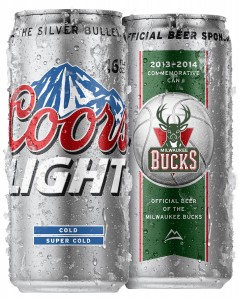Alcohol sponsorship in sports has a long and complex history, intertwining with cultural norms, economic interests, and public health concerns. From the early days of organised sports to the modern era, the relationship between alcohol brands and sporting events has evolved significantly. This article explores the timeline of alcohol sponsorship within sports, highlighting key milestones, statistics, and the ongoing debate surrounding this controversial partnership.
Early Beginnings: The 19th Century
The roots of alcohol sponsorship in sports can be traced back to the 19th century when beer companies began to associate their products with sporting events. The first recorded instance of such sponsorship occurred in the late 1800s, when breweries started sponsoring local teams and events, particularly in sports like baseball and football. This partnership was beneficial for both parties: breweries gained visibility and community goodwill, while sports teams secured much-needed funding.
During this period, alcohol consumption was prevalent, and there were few regulations governing advertising or sponsorship. The culture of drinking was deeply embedded in social activities, making it a natural fit for sports sponsorship. However, the rise of alcoholism and its associated social issues led to a growing awareness of the need for rehabilitation services. Many individuals struggling with addiction turned to alcoholism rehab centres for support, highlighting the darker side of alcohol consumption.
The 20th Century: Expansion and Regulation
As the 20th century progressed, alcohol sponsorship in sports expanded significantly. Major events, such as the Olympic Games and the FIFA World Cup, began to attract attention from alcohol brands. In the 1970s and 1980s, beer companies like Anheuser-Busch and Miller Lite became prominent sponsors of major sports leagues, including the National Football League (NFL) and Major League Baseball (MLB).
This period also saw the introduction of regulations regarding alcohol advertising. In 1982, the Federal Communications Commission (FCC) in the United States imposed restrictions on alcohol advertising during certain hours, particularly when young audiences were likely to be watching. Despite these regulations, alcohol sponsorship continued to flourish, with brands finding creative ways to engage with fans through promotions, contests, and event sponsorships.
A Statistic to Consider
According to a study by the World Health Organization, approximately 3 million deaths globally each year are attributed to alcohol consumption, highlighting the serious public health implications of alcohol use. This statistic underscores the importance of examining the relationship between alcohol sponsorship and its potential impact on public health, particularly among young and impressionable audiences.
The 21st Century: Controversy and Change
Entering the 21st century, the landscape of alcohol sponsorship in sports began to shift due to increasing scrutiny from public health advocates and changing societal attitudes towards drinking. The rise of social media and digital platforms also transformed how brands engaged with consumers, leading to new sponsorship strategies that often prioritised responsible drinking messages.
In recent years, several sports leagues have implemented stricter guidelines regarding alcohol sponsorship. For example, in 2015, the English Premier League introduced a code of conduct for alcohol sponsorship, which included measures to ensure responsible messaging and limit exposure to younger audiences. Similarly, the Australian Football League (AFL) has faced pressure to reconsider its partnerships with alcohol brands, particularly in light of rising concerns about binge drinking and its impact on youth. The connection between sports sponsorship and alcohol consumption raises important questions about the responsibility of sports organisations in promoting healthy behaviours and supporting those in need.
Current Trends and Future Directions
Today, alcohol sponsorship remains a contentious issue in the sports industry. While many leagues and teams continue to partner with alcohol brands, there is a growing movement advocating for more responsible sponsorship practices. This includes calls for increased transparency in advertising, as well as a focus on promoting moderation and responsible drinking.
Moreover, some sports organisations are beginning to embrace partnerships with health-focused brands and initiatives. For example, the NFL has launched campaigns promoting health and wellness, encouraging fans to consider the impact of alcohol consumption on their overall health. These efforts reflect a broader trend towards balancing commercial interests with social responsibility.
The Impact of COVID-19
The COVID-19 pandemic has further complicated the landscape of alcohol sponsorship in sports. With the cancellation of many sporting events and a shift towards virtual engagement, alcohol brands have had to adapt their strategies. This has led to innovative campaigns that leverage digital platforms to engage fans while promoting responsible drinking.
The timeline of alcohol sponsorship in sports illustrates a complex interplay between commercial interests and public health concerns. As society continues to grapple with the implications of alcohol consumption, the sports industry must navigate the challenges of maintaining lucrative sponsorships while promoting responsible behaviours. The ongoing dialogue surrounding alcohol sponsorship highlights the need for a balanced approach that considers the well-being of athletes, fans, and communities alike. As the conversation evolves, it is essential to acknowledge the role of rehab centres in supporting those affected by addiction and to strive for a future where sports and health can coexist harmoniously.




